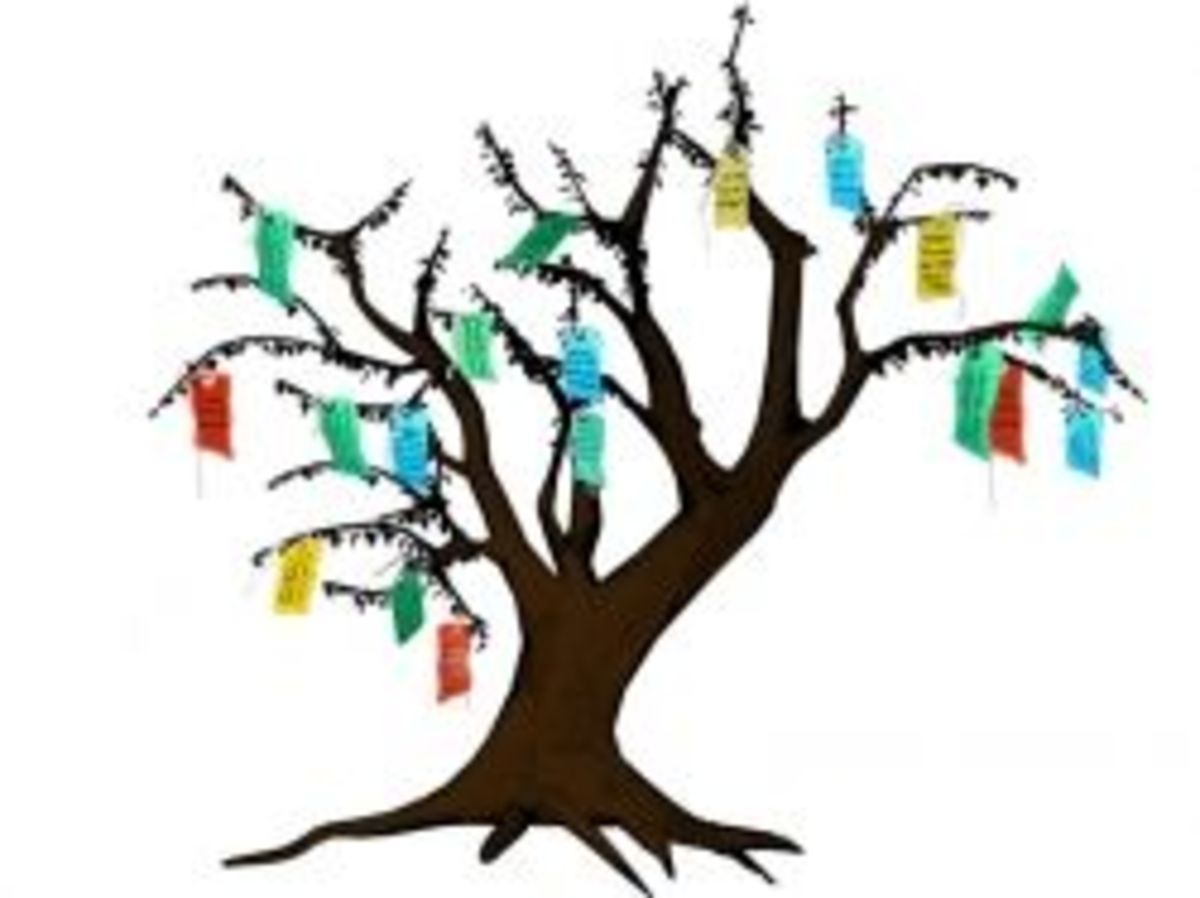Inspirational and Insightful Quotations #54 --- Wishing
Quotations on Wishing
Hope and ambition leading to success cannot be confused with wishful thinking. Hope and ambition are the masters of inspiration, the generating force that leads to action. Wishful thinking, on the other hand, is a tool of the weak, designed to satisfy the longing of one who cannot face reality and who is unwilling to pay the price of success.
—Alvin R. Dyer, Convocation Address, Provo, Utah, May 29, 1970.
Wishing and willing are not the same. To wish is to wait, to will is to act.
—H.W. Knickerbocker, Houston Post-Dispatch, Houston, Texas, Sept. 9, 1929.
Wishes run over in loquacious impotence. Will presses on with laconic energy.
—H.W. Knickerbocker, Houston Post-Dispatch, Houston, Texas, April 20, 1931.
Wishing and willing are, of course, not the same thing. There is a great difference between them.
But also there is a far closer relationship than most people suspect.
Willing, indeed, is to a remarkable extent dependent on wishing. What a man wills to do is chiefly a result of what he wishes to do.
More than this, his ability to do what he do is itself largely a product of his wishing. Wishing, when intense enough, breeds power.
"I wish I were a great inventor like Edison," says a young man to himself. "I wish I could discover how to turn electricity to new uses and make machinery that no one else has thought of."
But, alas, his wish is little more than a passing idea. It is not dwelt upon, sedulously cherished. Certainly it is not nearly so intense as other wishes this same young man fervently entertains--notably, let us say, the wish to play rather than to work.
The wish to play, being stronger than the wish to invent, being for that matter stronger than any other wish he has, motivates his will. If it be intense enough it may develop in him astonishing play ability along some special line.
Perhaps it will make him an expert bridge player, perhaps a marvel at billiards, perhaps a prodigy in golf.
But observe what happens if the wish to invent is really dominant in the heart of this young man.
At once he wills to apply himself unremittingly to the study of electricity and machinery. He puts his whole mind into this, thinks of it constantly, and after a while, all unawares, he becomes creatively observant.
He may not develop into an inventive genius in the class of Edison; but, given only a sufficiently intense wish, he is tolerably certain through study and reflection to get results in his chosen field of effort that will be surprisingly satisfactory.
Take, again, the case of a nervous invalid.
"I wish I were well like other people," laments this unfortunate person. "I wish I did not have to lead a helpless, useless existence."
This is a natural wish. But how strong a wish is it?
It is, in fact, stronger than the opposite wish--to continue in a state of nervous invalidism for sundry real or fancied advantages that nervous invalidism brings, such "advantages," for example, as freedom from responsibility for self support, exemption from tedious duties, the assurance of loving care from relatives, the flattering attention of eminent physicians?
Everything depends on the particular wish that is dominant in the nervous invalid's heart.
If the health wish rules, if it becomes an ardent longing, then the will to be well will truly function, means of getting well will be studied and conscientiously applied, the shackles of despair will be thrown off, the entire organism will be energized. And presently the nervous invalidism will be no more.
In other words, education of the will is education of the desires. Wise guidance in wishing means real accomplishment in willing and doing. If only parents and teachers clearly appreciated this, what a different, better world we should have!
—H. Addington Bruce, The Chicago Daily News, Chicago, Ill., March 21, 1919.
Wishful thinking is not enough to lift one from life's lower levels to those rarefied heights where the light of victory shines upon the upward path. It takes one's mind back to college days and the little rhyme:
"Heights that great men reached and kept,
Were not attained by sudden flight;
But they, while their companions slept,
Were toiling upward in the night."
It is that "toiling upward" in the moral, intellectual, and spiritual kingdoms that finally brings us all to the lighted heights.
Wishful thinking is not enough–good resolutions are not enough. It takes something more solid to become the foundation for victorious living. It takes faith–faith in one's self. Faith in the future. Undergirded by a rugged determination that, come what will, "I will climb the heights, I will make tomorrow better than today."
—Pierce Harris, Atlanta Journal, Atlanta, Ga., Jan. 1, 1951.
A habit easily acquired but very dangerous is this–looking back! Go ahead, look ahead, think ahead and you will get ahead. Even though your knees shake and your lips quiver, go right ahead!
There is nothing so dead as the dead past. When you make a business of living it over again in your mind, you are keeping company with the ghosts of yesterday. You hear the voices, you see the action, you feel the emotion--then you spend sleepless nights.
Haven't you heard–'no man puts his hand to the plow and then turns back.' If he did he would plow in circles instead of a straight line. To contribute to the spirit of the time, go forward. Voltaire said: 'He who has not the spirit of his age has all the misery of it.'
To reflect often brings remorse, but to hope is to enjoy. Hope ever urges us on and tells us that tomorrow will be better.
The road ahead may look dangerous. There may be difficulty around the corner--but the road back means hopeless failure. We must think of the undiscovered as friendly.
"I wish I could live my life over again"–Did you ever hear that? What foolish, wishful thinking! Live for today. It soon wears out and dies with the setting sun–there is another day fresh and unused.
—Carlysle H. Holcomb, Dallas Morning News, Dallas, Texas, May 16, 1953.
To pine means to indulge in wishful thinking. "The pasture is greener in the other man's fields" is an unfortunate attitude. Running from job to job is no way to get established. "If wishes were horses, beggars would ride." Discontent, dissatisfaction are evils to progress. I do not discount ambition nor adventure, but pining for something we may not have leads to listless ineffectiveness.
—Floyd Poe, Dallas Morning News, Dallas, Texas, March 31, 1952.
You can be as successful as almost anyone else if you start depending upon your backbone instead of your wishbone. If that green monster has you fit to be tied when someone else's ship comes in, try to remember that he sent his ship out first.
You can't be the winner of a contest if you don't enter. Opportunity is a thing you have to create yourself, and then take advantage of. Build determination in place of wishes. In other words, give you ship a chance to come in by sending it out now.
—Beverly Brandow, Dallas Morning News, Dallas, Texas, Jan. 30, 1952.
The distinction between a wish to be and a wish to have is vital in determining success. It is what one wants that will determine his character, because he gives himself to the accomplishment of that which he wants. A love of art, learning, or music, for itself, begets a desire to become a scholar, a musician, an artist. Without such a desire, one can only become a mimic or a mountebank.
So it is utterly impossible for a man to become good, unless he desires goodness for itself. One who pursues a noble calling merely as a means toward some other end never makes the highest success. The means is always subordinate to the end, and when it is necessary will be sacrificed. The pursuit of honesty as a business policy never begets integrity of character, and the day it ceases to be "good policy," it is forsaken. The professional patriot for place or power is never a benefactor of the people. He would use this virtue as a currency with which to purchase other things. To attempt this is to fill one's purse with moral counterfeits, which are worthless in this world, and in the world to come.
The most everyday experience in life is having two or more conflicting wishes. We often want to go in two opposite directions at the same time–or genuinely want to be two totally different people. This is indeed the puzzle of a personality. It accounts, too, for the utterly contradictory opinions held by different people of another person. Jesus said one say: "Happy is the man who hungers and thirsts after righteousness, for he shall be filled." He wants goodness more than anything else.
This is the one thing which is clear--the strongest wish will prevail. The man who steals wants to be honest, but wants what belongs to another more. That poor fellow wants to be a clear-headed person, but wants drink more. There are those who pity distress, and want to relieve suffering, but they wants their money with such a passion, they can no more give it up than can the drunkard his drink.
—M. Ashby Jones, The Atlanta Constitution, Atlanta, Ga., April 12, 1942.
If wishes were wings good works would soon increase.
—Henry F. Cope, Chicago Tribune, Chicago, Ill., Jan. 31, 1909.
If some folks would devote the same energy to working that they do wishing, they might get what they wish.
—Stewart F. Gelders, The Atlanta Constitution, Atlanta, Ga., Sept. 12, 1922.
The wish may be the father of the thought, but that isn't carrying the genealogy very far.
—Jack Haney, Nashville Banner, Nashville, Tenn., Oct. 6, 1924.
We don't dig a trench by wishful thinking.
—Thomas B. Neff, New York New York City Mission, New York, N.Y., January 1976.
Wishing never yet changed a tire.
—Phil H. Armstrong, Florida Times-Union, Jacksonville, Fla., Oct. 1, 1923.
Wishes catch no fishes.
—John Wesley Holland, quoted in Deseret News, Salt Lake City, Utah, Sept. 19, 1924.
Wishes come true when the wisher comes through.
—Bill Copeland, Sarasota Journal, Sarasota, Fla., April 7, 1960.
Man has three states: I will be; I am; I wish I had been.
—Robert Quillen, quoted in Deseret News, Salt Lake City, Utah, March 26, 1925.
Some ulcers are caused by an inflammation of the wishbone.
—Lester B. Dill, Houston Post, Houston, Texas, Sept. 26, 1966.
When you're young, you do a lot of wishful thinking; later you do a lot of thoughtful wishing.
—Lee R. Call, Star Valley Independent, Afton, Wyo., April 4, 1968.
The world is full of failures who mistake wishing for ambition.
—Carson City News, Carson City, Nev., Jan. 19, 1923.
Wish and Will are twin brothers, one endowed with imagination, the other with purpose. Wish is an amiable weakling. Will supports the family.
—Clarksville Leaf-Chronicle, Clarksville, Tenn., Nov. 14, 1928.
Just wishing things would change is about like holding a match to a thermometer to make the room warmer.
—Daily ldahonian, Moscow, Idaho, Oct. 15, 1948.
When in doubt as to what to do today, ask yourself what you will wish you had done when tomorrow comes.
—Idaho County Free Press, Grangeville, Idaho, July 27, 1944.
The trouble with most of us is that we let our wishes think for us instead of ourselves.
—Maury Democrat, Columbia, Tenn., Nov. 7, 1943.
More wishes would come true if so many of them weren't made sitting down.
—Preston Citizen, Preston, Idaho, Sept. 9, 1943.







